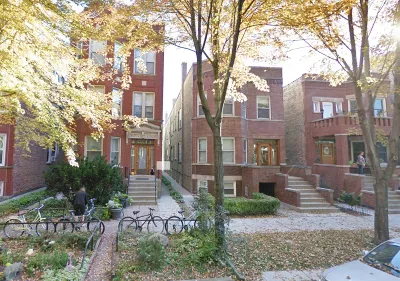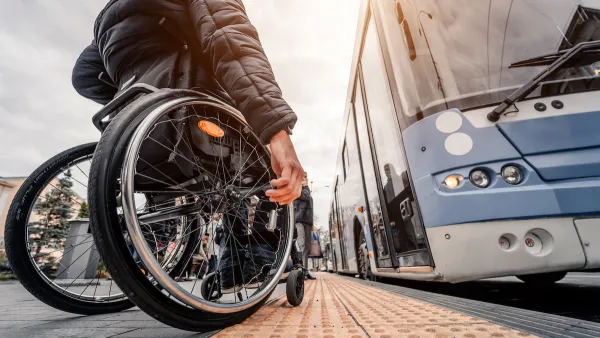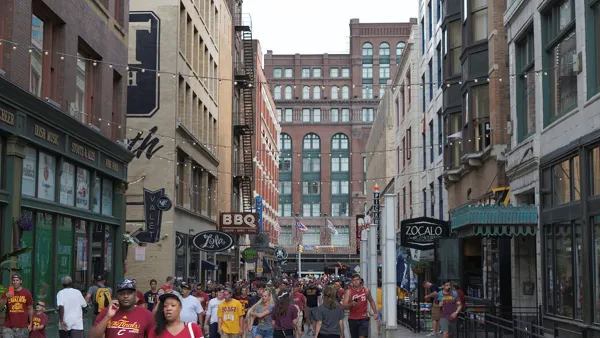A study of Chicago neighborhoods showed that access to urban amenities does not necessarily correlate with improved economic outcomes.

The '15-minute city' has become a popular buzzword for mayors around the world, but new research shows that close proximity to urban amenities does not necessarily correlate with lower poverty rates or more equitable outcomes.
As John Greenfield writes, Doug Bright used a series of maps created by Jeremy Glover that "looked at access to eight different types of destinations: grocery stores, parks, libraries, elementary schools, high schools, hospitals or urgent care centers, pharmacies, and ‘L’ stations" in Chicago to assess the relationship between 15-minute neighborhoods and equity.
[W]hite residents, who are more likely than other groups to live in dense neighborhoods, such as downtown and in the North Lakefront neighborhoods, are overrepresented in the areas that have high levels of access to essential resources. But counterintuitively, [Bright] also determined that 'The highest poverty rate (22%, compared to an 18% city average) is also found at the highest level of access.'
In conclusion, "[a]ny strategies for planning imported (especially in a top-down manner) from other cities, countries, or continents should be regarded with healthy skepticism, as one-size-fits-all approaches are bound to ignore important nuances and autonomy of a place."
The full paper is available here.
FULL STORY: Study: 15-minute walk/bike access to key resources is not enough to guarantee prosperity

Analysis: Cybertruck Fatality Rate Far Exceeds That of Ford Pinto
The Tesla Cybertruck was recalled seven times last year.

National Parks Layoffs Will Cause Communities to Lose Billions
Thousands of essential park workers were laid off this week, just before the busy spring break season.

Retro-silient?: America’s First “Eco-burb,” The Woodlands Turns 50
A master-planned community north of Houston offers lessons on green infrastructure and resilient design, but falls short of its founder’s lofty affordability and walkability goals.

Test News Post 1
This is a summary

Analysis: Cybertruck Fatality Rate Far Exceeds That of Ford Pinto
The Tesla Cybertruck was recalled seven times last year.

Test News Headline 46
Test for the image on the front page.
Urban Design for Planners 1: Software Tools
This six-course series explores essential urban design concepts using open source software and equips planners with the tools they need to participate fully in the urban design process.
Planning for Universal Design
Learn the tools for implementing Universal Design in planning regulations.
EMC Planning Group, Inc.
Planetizen
Planetizen
Mpact (formerly Rail~Volution)
Great Falls Development Authority, Inc.
HUDs Office of Policy Development and Research
NYU Wagner Graduate School of Public Service




























